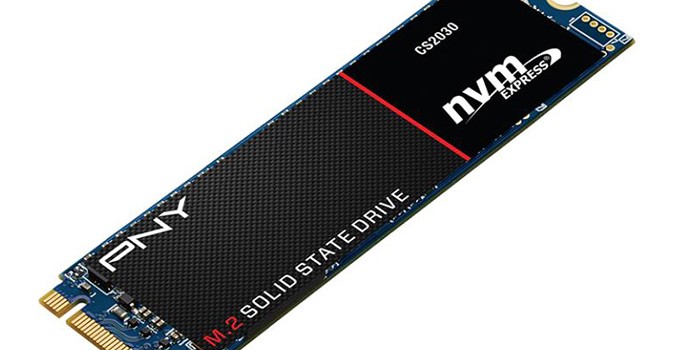Western Digital Announces WD Black PCIe SSD
Western Digital has announced the WD Black PCIe SSD, their first PCIe SSD for the consumer market. While the WD Green and WD Blue SSDs introduced last fall were relatively minor updates to existing SanDisk products, the WD Black is an all-new product. The WD Black is aimed at the cheaper half of the M.2 PCIe SSD market rather than competing for the highest performance: it will be available in 256GB and 512GB capacities for $109 and $199.99 respectively, making it cheaper than any currently available M.2 PCIe SSD except the Intel 600p. The WD Black most likely uses the Marvell 88SS1093 controller and 15nm TLC NAND, a combination that will also be found in Plextor’s upcoming M8Se (albeit with different firmware).
Write endurance ratings are 80 TB and 160 TB for the 256GB and 512GB models respectively, which are the lowest for this product class. On the other hand, the WD Black will carry a 5-year warranty and 1.75M hour MTTF rating.
| WD Black PCIe SSD Series Specifications | |||
| Capacity | 256GB | 512GB | |
| Form Factor | M.2 2280 | ||
| Interface | PCIe 3.0 x4 NVMe | ||
| Controller | Marvell 88SS1093 ? | ||
| NAND | SanDisk 15nm TLC ? | ||
| Sequential Read | 2050 MB/s | ||
| Sequential Write | 700 MB/s | 800 MB/s | |
| Random Read (4 KB) IOPS | 170k | 170k | |
| Random Write (4 KB) IOPS | 130k | 134k | |
| Power | Peak | 8.25 W | |
| Idle | 5.5 mW | ||
| Endurance | 80 TBW | 160 TBW | |
| Encryption | none | ||
| Warranty | 5 years | ||
| Price | $109 | $199.99 | |
The WD Black does not appear to include any heatspreaders, but Western Digital’s firmware includes advanced power and thermal management algorithms that WD claims will allow for consistent performance and low power consumption. The WD Black is rated for operating temperatures up to 70°C, so it may engage thermal throttling at a lower temperature than some other PCIe SSD. (For example, the OCZ RD400 throttles around 80°C.)
The WD Black PCIe SSD will be available in the first half of 2017. With this announcement, Micron’s Crucial is now the only major consumer SSD brand that does not have any PCIe SSDs. Last summer Micron abandoned plans for a Balistix TX3 product based on their 3D TLC NAND and Silicon Motion’s SM2260 controller.














